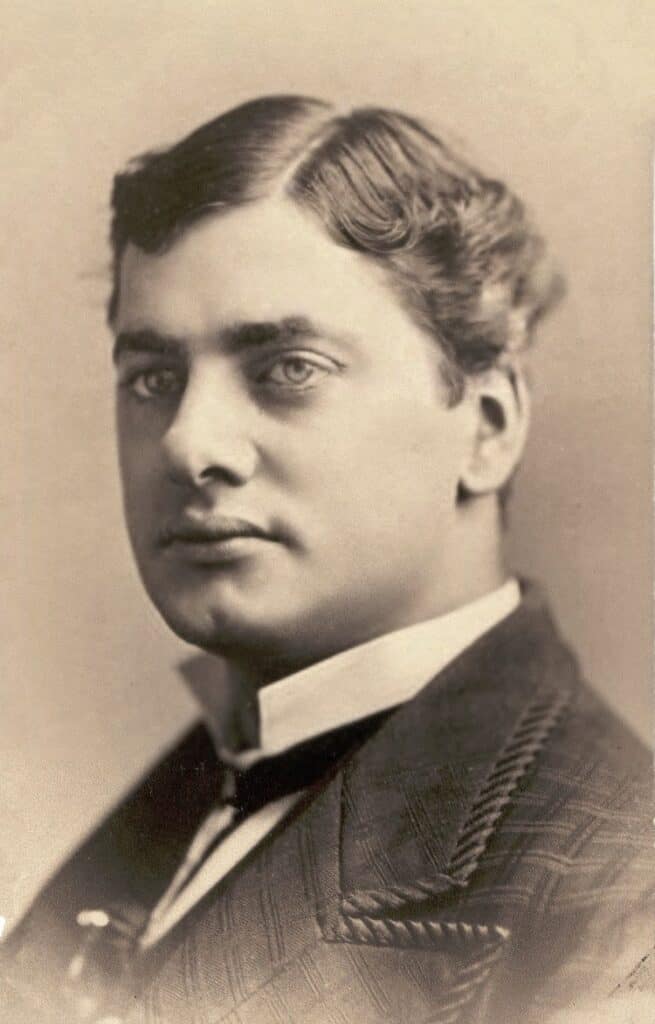
By Mary Hoar, Yonkers Historian, President Emerita Yonkers Historical Society, recipient of the 2004 Key to Histor and President Untermyer Performing Arts Council
Monday, December 26th:
December 26, 1927: Comptroller Robert Ferguson presented gold pieces to each member of his office staff as a token of his appreciation; the staff presented him with an electric arc lamp.
December 26, 1941: After a Christmas Day test of emergency mobilization of the 125 Yonkers Auxiliary Police, the Common Council approved the purchase of flashlights, badges and nightsticks for the men, as the men were not properly equipped.
Tuesday, December 27th:
December 27, 1905: The Common Council voted to put two Welsbach gas lamps in front of Mayor John Coyne’s home at 100 North Broadway.
December 27, 1906: Yonkers African-American residents met in Turn Verein Hall to petition the War Department to recognize the efforts of Black officers and servicemen; they wanted the department to allow them to join the Army and National Guard. President Theodore Roosevelt had dismissed three companies of African American infantry when they returned from the Cuban campaign. Captain John Waller, who had served in Cuba, said he was afraid the President did not realize the “terrible injury” he had done to the soldiers discharged without cause, and reminded those gathered many of them had voted for Roosevelt.
Wednesday December 28th
December 28, 1783: Israel Honeywell, William Hadley and Thomas Sherwood supervised the town meeting at which Town officers were elected. The meeting for Yonkers in the Manor of Philipsborough was held at the home of David Hunt. Those elected would provide temporary government until the enemy abandoned or was dispossessed of the region. Israel Honeywell, Esq., was voted Supervisor; David Hunt, Clerk; Thomas Sherwood, Constable and Collector; Israel Honeywell, Jr., Esq., Security; and William Betts and Jacov Vermilyear were elected assessors.
December 28, 1929: Although Mayor John Fogarty gave a $1,000 raise to the Public Safety Commissioner and $1,500 raises for the DPW Commissioner, Corporation Counsel and City Engineer in the 1930 Yonkers budget, he refused the raise the salary of the Mayor.
Thursday, December 29th
December 29, 1902: Gus Williams of Waring Place, well known German comedian and vaudeville star, sent out New Year’s cards with the message, “Father Time Ushering in the New Year and Plenty of Coal.” A Civil War veteran, his first appearance was during the Union Army’s occupation of Huntsville, Alabama; he appeared as Carney in the “The Pirate Legacy: The Wrecker’s Fate.” After the war, he joined Tony Pastor’s vaudeville show and became nationally known. His name at birth was Gustave Leweck, Jr.
December 29, 1907: More than 600 men heard Captain Richmond Hobson, a Congressman from Alabama, speak on International Peace at the YMCA. Hobson claimed the only thing preventing “trouble with Japan” was the “tactful diplomacy of our President,” Theodore Roosevelt.
Friday, December 30th:
December 30, 1912: The first Yonkers private home with an “electrically lighted Christmas tree” was on the lawn of the Edwin J. Morrison family; they lived at Fanshaw and Berkeley Avenues in the Van Cortlandt Terrace section of Southwest Yonkers.
December 30, 1941: To comply by the State Legislature’s new City Court Act, City Judge Charles Boote resigned as a partner of the firm Boote and Fay, and Council for the First National Bank. The act prohibited judges from practicing law while on the bench. Boote and Fay was organized in 1933, and the judge was with the First National Bench from its organization the same year. He had served on the City Court bench for 22 years.
Saturday, December 31st:
December 31, 1849: The Hudson River Railroad began service between Yonkers and New York City.
December 31, 1931: Dr. James Morrissey of St. Andrew’s Place purchased an airplane that he kept at Curtiss Wright Field in Rosedale, Long Island. Morrissey had completed training for his pilot’s license, and was believed to be the first Yonkers doctor to qualify as a pilot.
Sunday, January 1st
January 1, 1909: The annual run from Columbus Circle started at midnight, with the twenty-eight cyclists participating blowing whistles and horns. The group rode up Broadway, with their first top at Francfort’s Inn where Yonkers Mayor Warren greeted them. From there they rode to the Florence House in Tarrytown, the end of the run.
January 1, 1939: City Clerk Francis Heafy administered the Oath of Office at City Hall to members of Yonkers’ first citywide Council: James Sullivan, Robert Goodwillie, Edith Welty, Dennis Cooper and John Condon.
Questions or comments? Email YonkersHistory1646@gmail.com.
For information on the Yonkers Historical Society, Sherwood House and upcoming events, please visit our website www.yonkershistoricalsociety.org, call 914-961-8940 or email info@yonkershistoricalsociety.org.





